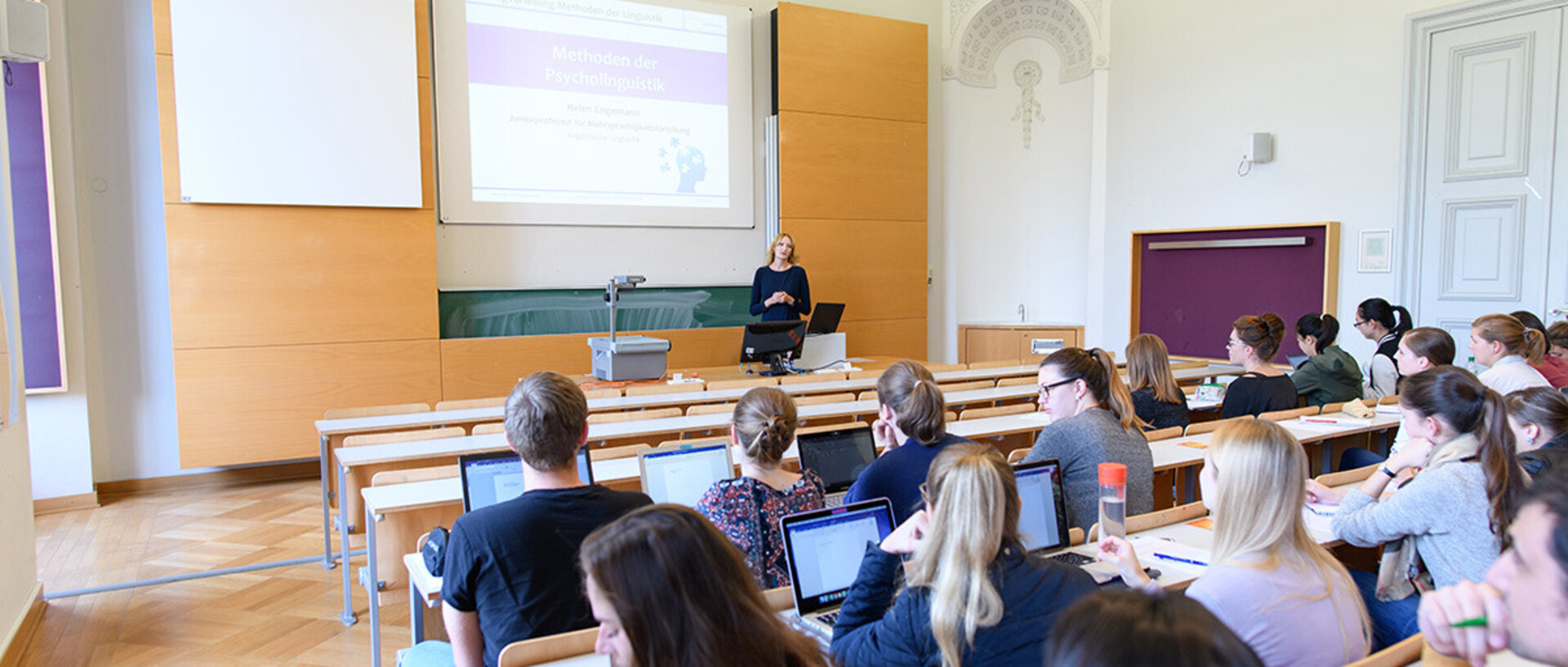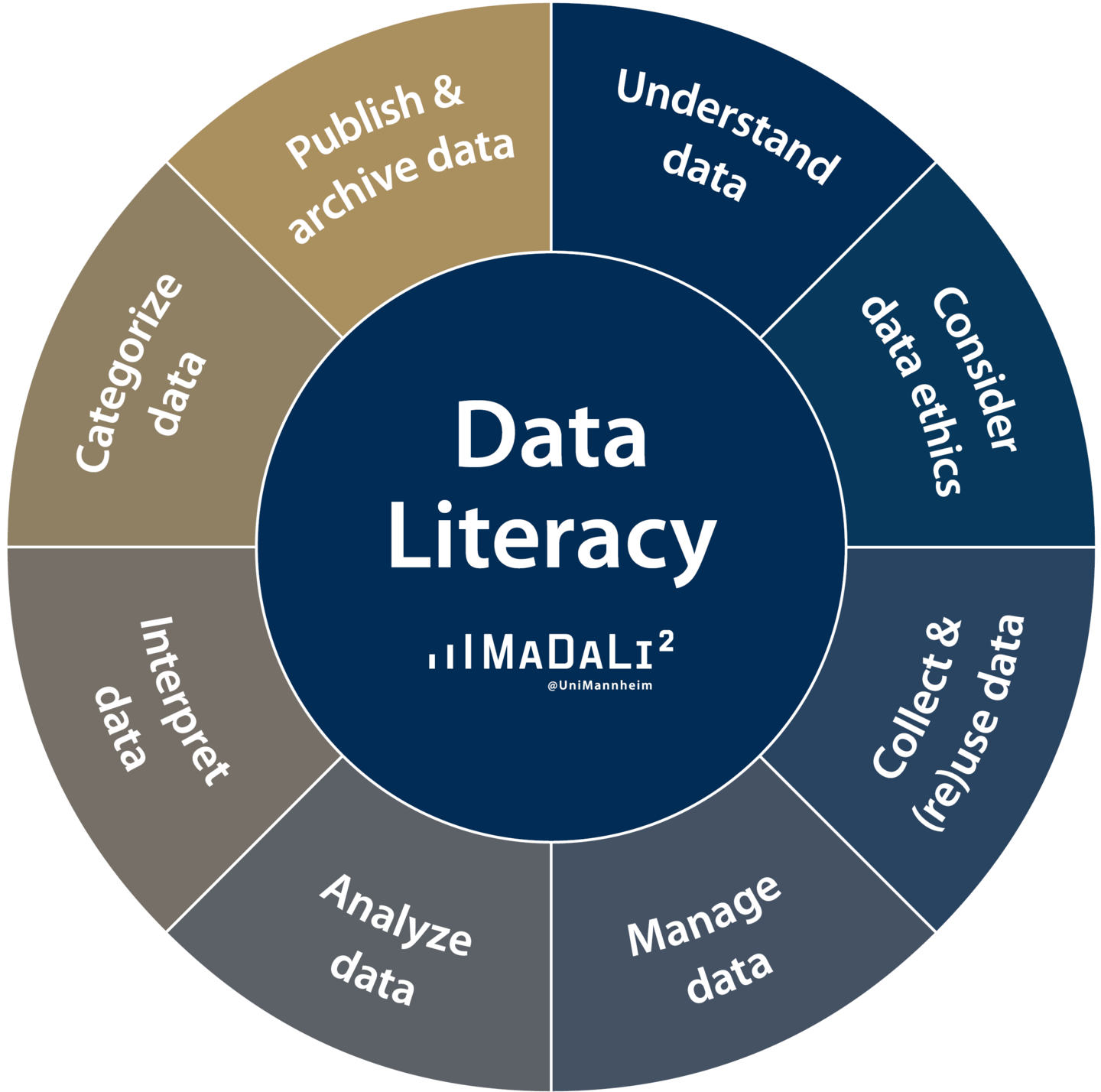The E-Learning Course – Mannheim Data Literacy (MaDaLi²)
Data literacy for students of all disciplines
The Mannheim Data Literacy (MaDaLi²) e-learning course provides students with the opportunity to receive an interdisciplinary education in the theoretical principles and practical skills of data management. The course was developed within a collaborative project (Teaching and Learning Center (ZLL), University Library (UB), representatives of the Business School (chair held by Professor Stahl) and the School of Humanities (chair held by Professor Altvater-Mackensen and chair held by Professor Naab).
The basic course consists of eight modules based on the data literacy framework of Schüller et al.. Students can work on the learning modules flexibly by themselves. As a teacher, you can also integrate the modules into your teaching (for example as part of an inverted classroom concept). Students do not need any previous knowledge to complete the course.
Module overview
Module 1: Understand data
- Basic knowledge of the concept of data literacy
- Data in everyday life and research
- Teaching methodological skills (qualitative and quantitative research)
- Introduction to the (research) data life cycle
- Ethical problems in dealing with data
Module 2: Consider data ethics
- Data protection
- Copyright law and license law
- Introducing the concept of personal data
Module 3: Collect and (re)use data
- Explaining qualitative and quantitative data collection using various data collection methods
- Empirical studies
- Open Data
- Dealing with protected data
Module 4: Manage data
- Metadata and documentation
- Importance of key figures
- Data conversion
Module 5: Analyze data
- (Explorative) data analysis and cleansing
- Introduction to statistical key figures
- Basics of inferential statistics and evaluation of sample data
- Recognizing patterns and trends in data
- Data visualization
Module 6: Interpret data
- Introduction to the concept of visual literacy
- Critically analyzing data visualizations
- Bias and distortions
Module 7: Categorize data
- Critically classifying and evaluating data
- Interpreting data analyses
Module 8: Publish and archive data
- Publishing data sustainably in repositories
- Subsequent use and long-term preservation
- Introducing the FAIR principles
- Open science and open access
- Excursus on the National Research Data Infrastructure (NFDI)
The introductory course is now available. Simply join the ILIAS course Mannheim Data Literacy – MaDaLi² .
We will be happy to advise you on the integration of individual modules into courses!
Contact

Dr. Leonie Bröcher (she/her)
Teaching and Learning Center
Schloss – Room ZEO 094
68161 Mannheim

Thomas Schmidt, M.A.
University Library
Schloss Schneckenhof West – Room S 264.1
68161 Mannheim

